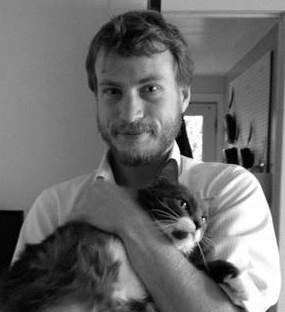My work is centered in both experimental phonology and phonetics and theoretical phonology, and frequently explores the implications of hypotheses about phonetic grounding for formal phonological representations. Some topics that have been of particular interest include:
I am particularly interested in using research methods that combine experimental and statistical sources of information with traditional phonological analysis.
I'm currently working with Anna Greenwood to perform a statistical meta-analysis of studies investigating substantive bias (towards 'phonetically natural') process in artificial grammar learning. [Do you have an unpublished study we should know about? Please send it along! We need unpublished studies to help combat publication bias.]
I'm working with Michaela Hejná on a series of experiments investigating the perceptual role of pre-aspiration and pre-consonantal creak in cueing the fortis/lenis contrast in British English (and the trade-off between the two in dialects where both are found).
This work on pre-aspiration relates to a broader project I'm currently working on, investigating the perception of phonological categories with diverse phonetic cues. I'm preparing a series of behavioural and ERP experiments designed to investigate the role that this level of abstraction plays in phonological processing.
I'm also in the process of running a series of artificial grammar experiments designed to examine biases involved in segment- and feature-based generalisations. Previous studies have shown that subjects' tendency to form broad feature-based generalisations mimics implicational hierarchies in typology. This set of experiments explores the extent to which those tendencies are domain-specific, and whether more general cognitive traits can predict individuals' behaviour.
Alongside Kristine Yu, Chris Green, and Will Bennett, I'm collecting primary data on Somali vowel harmony. We're attempting to verify claims that it can extend beyond word boundaries, and to get a better handle on the nature of the relevant contrast.
As an amusing side project, I've compiled a database of phonetically-transcribed proper names of aliens in Star Trek for computational analysis. The serious question: to the extent that native-language (English) phonotactic frequency and 'universal' markedness can be teased apart, which is a better predictor of the phonotactic properties that give these names the required sense of novelty?
My dissertation work focused on both formal and functional approaches to vowel harmony, with a particular view towards locality and the role of non-participants in harmony domains. This work drew on experimental methods as well as typological evidence and formal phonological analysis to address the treatment of transparent and opaque segments in harmony processes.
I argued that the choice between transparency and opacity is best described as a competition between potential harmony triggers, and that transparent harmony involves explicitly non-local representations. I provided a formal analysis based in Serial Harmonic Grammar, using a positively-defined scalar harmony constraint.
